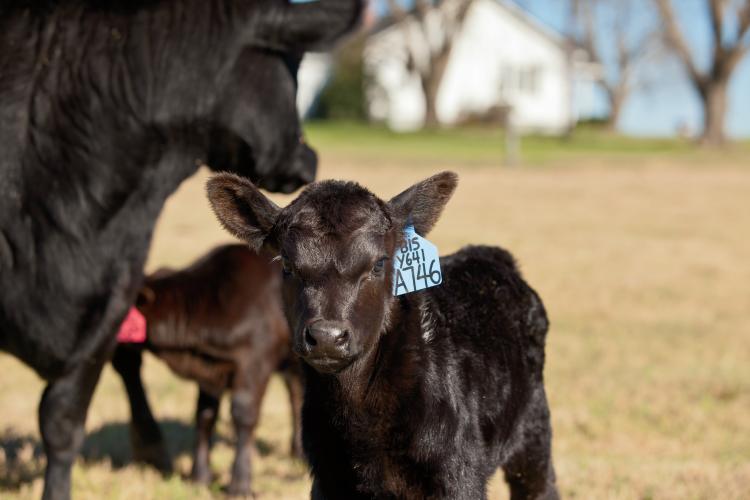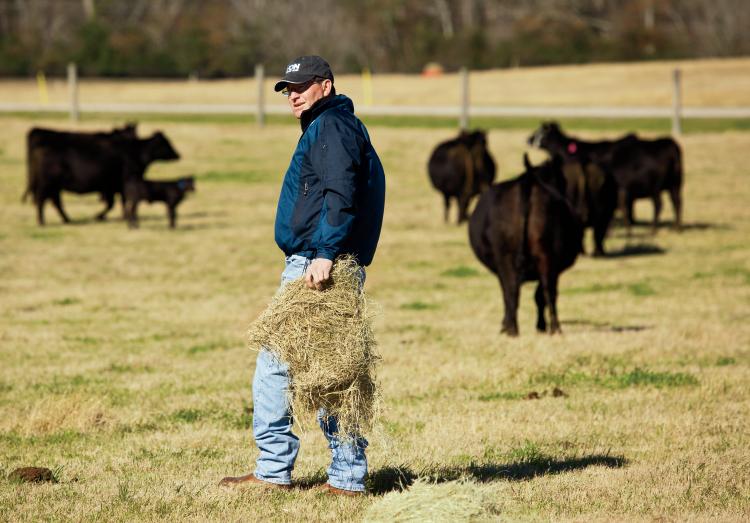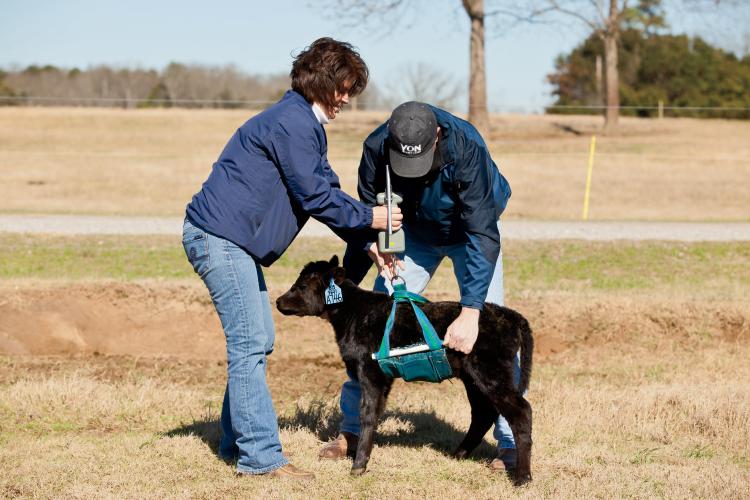Home > South Carolina > South Carolina Crops & Livestock > South Carolina Beef Farms Showing Good Health
South Carolina Beef Farms Showing Good Health

In a relatively short period of time, Brandon Hurley has seen the large and small of the South Carolina beef industry.
As owner of Bar H Cattle in the northern part of the state, Hurley is entrenched in the world of beef. He and his wife, Eva, lease about 1,500 acres of land in Laurens County, where their operation specializes in cow and calf production, breeding stock performance tests and preconditioning cattle for feed-out.
“We have about 150 mama cows and we stocker between 300-400 calves through the fall,” Hurley says. “And now we’re doing a lot of embryo transfer work.”
Hurley also served as president of the South Carolina Cattlemen’s Association for two years, and currently sits on its board, as well as the board for the South Carolina Beef Council. He is a strong advocate for the beef industry, often speaking publicly about it and giving area students and others hands-on demonstrations at his operation.
Not bad for someone who started from scratch.

For the Love of It
Hurley was a student at Clemson University when he began his business in 2001. He encountered plenty of startup pains, especially from banks that were resistant to lending money to a college student looking to launch a cattle operation.
“It was tough finding the financing,” Hurley says. “But I met some really good people along the way that helped me, and I just kind of grew it from there. The good Lord just blessed me. He opened up doors and opportunities.”
“You have to love it,” he adds. “There’s no way around it. There are other things I could do to make more money, but I love what I do.”
There are some 4,000 active cattle producers and about 450,000 heads of cattle in South Carolina, according to Roy Copelan, executive director of the state’s Beef Council. Cattle ranks fifth among the state’s agricultural commodities, with just over $156 million in cash receipts for 2011.
“We have a very small beef industry in South Carolina, compared to Midwestern states, and even some of our neighboring states in the South,” Copelan says. “Producers vary in size of operations from one cattle right on up, with the average size about 350-400 cattle.”

Sustaining Legacies
They vary in years of operation as well. While Hurley’s business is only 12 years old, Legare Farms has much deeper roots – nearly 290 years, to be exact.
“This is a ninth-generation farm that has been here since 1725,” says Thomas Legare, who operates the crop and livestock farm in Johns Island along with his sisters Helen Legare-Floyd and Linda Legare-Berry. “We have beef cattle on about 200 acres of pasture. Beef is the largest part of our farm operation.”
Legare says he buys grain from microbreweries in Charleston to feed his cattle, which he butchers and sells directly to consumers or to restaurants in nearby Charleston. His farm even has a Butcher’s Club, which offers memberships that work similarly to Consumer Supported Agriculture programs.
Kevin and Lydia Yon don’t have the family history in farming on the scale of the Legares, but they own a 1,500-acre operation in Ridge Spring they hope will be passed on through their three children. And to that end, Yon Family Farms uses a variety of practices that can better ensure the sustainability of their farm.
The Yons, who operate a diversified Angus seed-stock operation as well as grow crops, earned the 2009 National Environmental Stewardship Award for their whole-farm commitment and leadership in conserving natural resources.
Copelan says the state’s beef industry is healthy overall.
“We are producing great animals, sound beef and safe beef for consumers in our state or or wherever it might be going,” he says.



